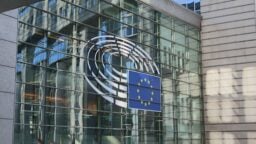The European Commission has agreed the key areas it needs to tackle in its Digital Single Market Strategy.
This includes the removal of geo-blocking of content, which currently prevents certain EU territories from being able to download or stream music despite it being legally available in neighbouring territories.
According to the EC: “The internet is a goldmine of digital opportunities… but every day in the EU people and companies run into many barriers – from geo-blocking or cross-border parcel delivery inefficiencies to unconnected e-services. Digital services too often remain confined to national borders.”
The Juncker Commission has made it a priority to create a Digital Single Market, which it says will make the EU’s single market freedoms “go digital”, and boost fiscal growth and jobs in Europe.
The Digital Single Market Strategy is due to be set in stone in May, but the EC has now highlighted the main areas the Commission will focus on.
“Let us do away with these fences and walls that block us online. People must be able to freely go across borders.”
Andrus Ansip, digital single market committee
Vice-President for the Digital Single Market Andrus Ansip said: “Let us do away with all those fences and walls that block us online. People must be able to freely go across borders online just as they do offline. Innovative businesses must be helped to grow across the EU, not remain locked into their home market.
“This will be an uphill struggle all the way, but we need an ambitious start. Europe should benefit fully from the digital age: better services, more participation and new jobs”.
Commissioner for the Digital Economy and Society Günther H. Oettinger said: “Europe cannot be at the forefront of the digital revolution with a patchwork of 28 different rules for telecommunications services, copyright, IT security and data protection. We need a European market, which allows new business models to flourish, start-ups to grow and the industry to take advantage of the internet of things.
“And people have to invest too – in their IT-skills, be it in their job or their leisure time”.
The Commission says it will concentrate on three main areas:
Better access for consumers and businesses to digital goods and services
- Facilitating cross-border e-commerce, especially for SMEs, with harmonised consumer and contract rules and with more efficient and affordable parcel delivery. The EC says that, today, only 15% of consumers shop online from another EU country – which is not surprising, if the delivery charge ends up higher than the actual price of the product;
- Tackling geo-blocking: too many Europeans cannot use online services that are available in other EU countries, often without any justification; or they are re-routed to a local store with different prices. Such discrimination cannot exist in a Single Market;
- Modernising copyright law to ensure the right balance between the interests of creators and those of users or consumers. It will improve people’s access to culture – and therefore support cultural diversity – while opening new opportunities for artists and content creators and ensuring a better enforcement of rights;
- Simplifying VAT arrangements is important to boost the cross-border activities of businesses, especially SMEs. The cost and complexity of having to deal with foreign tax rules are a major problem for SMEs. The VAT-related costs due to different requirements are estimated at EUR 80 billion.
Shaping the environment for digital networks and services to flourish
- All digital services, applications and content depend on high-speed internet and secure networks: the lifeblood of new, innovative digital services. To encourage investment in infrastructure, the Commission will therefore review the current telecoms and media rules to make them fit for new challenges, in particular relating to consumer uses (for example the increasing number of voice calls made over the internet) and new players in the field;
- Spectrum is the air the internet breathes. Improving coordination among Member States is essential. Europe has witnessed significant delays in the roll-out of the latest 4G technology, as suitable spectrum was not available. Spectrum does not stop at national borders: a European approach to its management is needed to promote a genuine single market with pan-European services.
- Today, 72% of internet users in Europe are concerned about using online services because they worry that they have to reveal too much personal data online. The swift adoption of the Data Protection Regulation is key to boosting trust.The Commission will look into the growing importance of online platforms (search engines, social media, app stores, etc.) for a thriving internet-enabled economy. This includes looking at how to strengthen trust in online services through more transparency, how to include them in the online value chain, and to facilitate the swift removal of illegal content.
Creating a European Digital Economy and Society with long-term growth potential
- Industry is a key pillar of the European economy – the EU manufacturing sector accounts for 2 million companies and 33 million jobs. The Commission wants to help all industrial sectors integrate new technologies and manage the transition to a smart industrial system (“Industry 4.0”).
- Standards: ensuring interoperability for new technologies are essential for Europe’s competitiveness, they must be developed faster.
- The Commission also wants industry and society to make the most of out of the data economy. Large amounts of data are produced every second, created by persons or generated by machines, such as sensors gathering climate information, satellite imagery, digital pictures and videos, purchase transaction records, or GPS signals. Big data is a goldmine, but it also raises important challenges, from ownership to data protection to standards. These need to be addressed to unlock its potential.
- The same goes for cloud computing, the use of which is rapidly growing: the proportion of digital data stored in the cloud is projected to rise from 20% in 2013 to 40% in 2020. While shared networks and resources can boost our economy, they also need the right framework to flourish and be used by more people, companies, organisations and public services across Europe.
- Europeans should also be able to fully benefit from interoperable e-services, from e-government to e-health, and develop their digital skills to seize the opportunities of the internet and boost their chances of getting a job.
One group helping shape the Digital Single Market is independent music body IMPALA, which met with MEP Sabine Verheyen and EU officials last week.
The meeting featured real life case studies on artists and labels. Martin Mills (Beggars Group) discussed Adele’s partnership with her label XL Recordings, and urged policymakers to set the right conditions to ensure her success story is not the exception. Mark Kitcatt (Everlasting Records) talked about the importance of local markets and how his work with Guadalupe Plata from Andalusia had helped the band increase its international audience. An interview with Christof Ellinghaus, founder of Berlin-based label City Slang focussed on the artist Caribou and his latest album “Our Love” and set out his recommendations for labels setting up today.
IMPALA’s 10-point Digital Action Plan includes”reinforcing copyright and addressing the transfer of value to certain online operators”, which Smith noted is “essential to establish a distortion-free licensing market”, alongside other measures to “reinforce the cultural industries and in particular smaller players who account for 80% of all new releases, 80% of the sector’s jobs, and 90% of the added value”.
MEP Sabine Verheyen said: “What I like about IMPALA’s action plan is that it challenges us to come up with an industrial policy, not just a piecemeal approach. From finance to taxation, and concrete recommendations to improve diversity and measure our sector properly, it provides real food for thought. It also encourages us to see copyright review as an opportunity to strengthen rights and make Europe the place to be if you want to be a leading creative business. And that for me is the key.”
Kees van Weijen, Managing Partner [PIAS] Rough Trade distribution and Chairman of IMPALA said: “This type of dialogue with policy makers is very important. We thank Mrs Verheyen for the opportunity to exchange views on copyright, the ‘value gap’, finance and other priorities set out in IMPALA’s Digital Action Plan.”Music Business Worldwide




